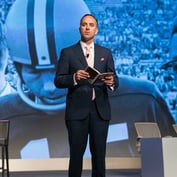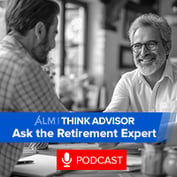As defined benefit plans continue to disappear, more American workers are relying on defined contribution plans, like 401(k)s, to save for retirement. And because the defined contribution market is booming, many advisors and benefits brokers who’ve never worked with retirement plans would like to break into this market. They just don’t know where to start.
“It is a complicated world,” says Phil Chisholm, vice president of defined contribution product management for Fidelity. “It’s difficult for an advisor to step in and say, ‘Today I’m going to be a 401(k) advisor.’”
See also: Pensions vs. 401(k)s: Which is better for retirement income?
That’s why Chisholm advocates that anyone interested in working with 401(k)s start by aligning themselves with someone who’s already successful in that environment. If the advisor’s an expert on investments, she could team up with someone who complements her skills, like someone who specializes in plan design or education.
It helps build knowledge and gives individuals a better understanding of the elements that go into 401(k) sales and service, Chisholm says.
He also recommends that anyone interested in becoming a 401(k) plan advisor should get out there and learn as much as they can about the retirement business. That means acquiring industry designations, joining local groups, taking college courses on financial planning (with a retirement focus) and taking advantage of educational offerings from industry groups such as the American Society of Pension Professionals and Actuaries and the College of Financial Planning.
“The more networking abilities they build and the more confidence they have in their own abilities the better level of support they can give plan sponsors,” Chisholm says.
Financial advisors also should build strong relationships with individuals outside of the industry as much as possible, like CPAs, insurance brokers, auditors and local chambers of commerce, he says. They also should cater to industries in which they are personally knowledgeable and focus on those types of businesses in regions where they want to do business.
Brokers who have never worked in the 401(k) market should start their journey with smaller plans or startups. Those are the “types of organizations that are going to be elementary in their needs, so advisors can build knowledge by focusing from the ground up,” Chisholm says. A novice wouldn’t even know where to begin if a $100 million plan dropped in their laps.
The world has evolved quite a bit in the past decade, he says. It’s very difficult to be an advisor who sells one or two plans and can service them appropriately. Fee disclosure and compliance regulations have made it very difficult to be in the defined contribution marketplace, he says. It requires some level of specialization.
Jason Grantz, an institutional consultant with Lexington, Ky.-based Unified Trust Retirement Plan Consulting Group, says there’s a big gap between the advisors who are real experts in qualified plans and newer advisors who are just learning the business while trying to attract clients.
He says that working with those who already have expertise in the 401(k) space is a good way to learn the business. Then they are splitting accounts instead of competing against each other for that business, Grantz explains.
Many new regulations have come into play during the past few years and more are on the way, including changes to the Securities and Exchange Commission’s and Department of Labor’s fiduciary standards.
“I do think it is a very specialized area of the broader financial marketplace, a poorly understood one in aggregate,” Grantz says. “Even in the circles I travel in, retirement plan professionals, there’s a spread between those who are elite and those who are just simply knowledgeable about providing service.”
There are two models out there advisors use for their business. Some want to be the best in the qualified plan space. Others operate on a more general contractor model where they work with other skilled people and bring them in as needed. Both models work very well, Grantz says.
The Online 401(k), for example, deals with numerous advisors who haven’t worked with a lot of 401(k) plans in the past.
“They say, ‘I don’t understand any of this. Make it easy for me. This is new for me. I don’t want to misstep. I don’t want to commit to work that is not profitable for me,’” says Craig Howell, director of business development at The Online 401(k).
“We’re one of a few vendors who are not interested in working with experts. We spend a lot of time helping advisors figure out if they want to be in the industry,” he says.








 December 30, 2013 at 11:23 AM
December 30, 2013 at 11:23 AM









